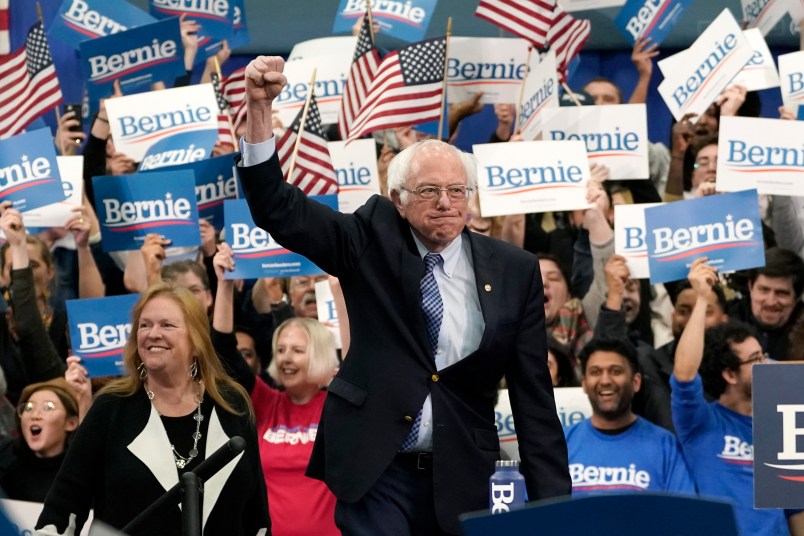Bernie Sanders pulled it off — but it was a close race.
At around 11 p.m. ET, the Vermont senator was projected the winner of the New Hampshire Democratic primary. Former Mayor Pete Buttigieg is currently at a close second.
With 87 percent of precincts reporting, Sanders pulled in 26 percent of the vote, according to ABC News and NBC. With 24 delegates at stake, Sanders is set to gain nine in the race for the nomination. The results were a stark contrast from the last time Sanders won the state — in 2016, Sanders captured 60 percent of the vote.
Shortly after his projected win, Sanders told supporters in Manchester “the reason that we are going to win is that we are putting together an unprecedented, multigenerational, multiracial political movement.” Sanders also expressed his appreciation and respect for Buttigieg, Sen. Amy Klobuchar (D-MN), Sen. Elizabeth Warren (D-MA) and former Vice President Joe Biden.
Bernie takes a victory lap pic.twitter.com/sPAngCupUx
— TPM Livewire (@TPMLiveWire) February 12, 2020
Warren and Biden were duking out it for fourth and fifth place, respectively. Biden, for his part, didn’t even bother to hold an election night event in the Granite State, opting instead to address supporters in South Carolina, a state where he hopes to receive a jolt to his shaky campaign.
While speaking to supporters in New Hampshire, Buttigieg congratulated Sanders on his “strong showing tonight” but pledged that “we are here to stay.”
Buttigieg congratulates Sanders on "strong showing tonight" pic.twitter.com/7JnUQDRGiw
— TPM Livewire (@TPMLiveWire) February 12, 2020
Klobuhar was the real surprise of the night, finishing in third place after a strong debate performance late last week.
Biden and Warren will not pick up any delegates from the New Hampshire primary. Neither of them are set to meet the 15 percent threshold required to win pledged delegates, according to NBC News.
It’s unclear if Sanders will continue the same trajectory heading into primaries in Nevada and South Carolina later this month, which have a more diverse electorate than the first two contests.
Both Sanders and Buttigieg — who represent the oldest and the youngest Democratic presidential candidates, respectively — aimed to set themselves apart within the Democratic Party throughout their campaigns. While Sanders has used progressive policy proposals such as Medicare for All to tout his brand of economic populism, Buttigieg has marketed himself as the solution to unite a fractured Democratic Party following the 2016 presidential election.
Sanders had resisted waging attacks against Buttigieg until after the Iowa caucuses, criticizing the former South Bend mayor’s wealthy donor base during the Democratic presidential debate Friday night as well as in TV appearances throughout the weekend before the New Hampshire primary.



